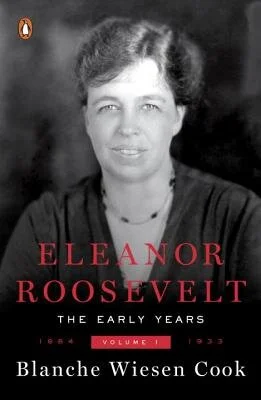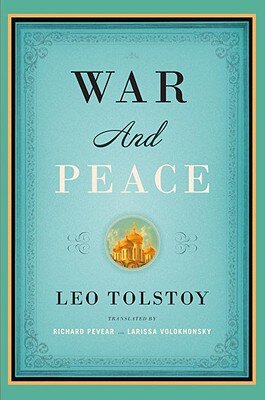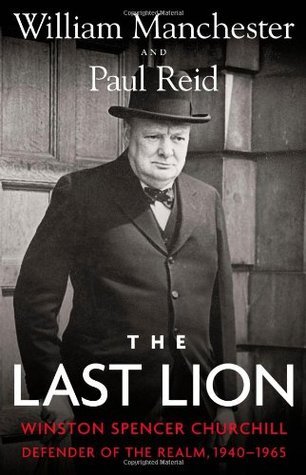Political Reads from Rory Gilmore
The ultimate political Book list from rory Gilmore
Maybe you wouldn’t immediately associate Rory with politics, but the seven seasons of Gilmore Girls have given us plenty of evidence of Rory’s involvement in the political scene. From voting for Town Selectman to considering writing her college admissions essay on Hilary Clinton, Rory definitely likes to be in the know when it comes to well-known politicians and the history of current and historical governments. So, get informed and cast your vote for whichever political read from Rory’s list interests you the most.
This page may contain affiliate links. For those purchases, the Gilmore Book Club receives a small commission- thanks! Book purchases from this page also benefit indepndant book stores.
Eleanor Roosevelt Volume 1: 1884-1933, Eleanor Roosevelt, Volume 2: The Defining Years, 1933-1938,Eleanor Roosevelt Volume 3: The War Years and After, 1939-1962
by Blanche Wiesen Cook
Goodreads Summary: “Volume 1: 1884-1933: Celebrated by feminists, historians, politicians & reviewers everywhere, Blanche Wiesen Cook's Eleanor Roosevelt presents an unprecedented portrait of the towering female figure of the 20th century. This volume begins with her harrowing childhood, describes the difficulties of her marriage & explains how she persuaded Franklin to make the reforms that would make him famous.
Volume 2: 1933-1938: Eleanor Roosevelt was born into the privileges and prejudices of American aristocracy and into a family ravaged by alcoholism. She overcame debilitating roots: in her public life, fighting against racism and injustice and advancing the rights of women; and in her private life, forming lasting intimate friendships with some of the great men and women of her times. This landmark biography provides a compelling new evaluation of one of the most inspiring women in American political history. Celebrated by feminists, historians, politicians, and reviewers everywhere, it presents an unprecedented portrait of a brave, fierce, passionate political leader of our century.
Volume 3: 1939-1962 Historians, politicians, critics, and readers everywhere have praised Blanche Wiesen Cook’s biography of Eleanor Roosevelt as the essential portrait of a woman who towers over the twentieth century. The long-awaited third and final volume takes us through World War II, FDR’s death, the founding of the UN, and Eleanor Roosevelt’s death in 1962. It follows the arc of war and the evolution of a marriage, as the first lady realized the cost of maintaining her principles even as the country and her husband were not prepared to adopt them. Eleanor Roosevelt continued to struggle for her core issues—economic security, New Deal reforms, racial equality, and rescue—when they were sidelined by FDR while he marshaled the country through war. The chasm between Eleanor and Franklin grew, and the strains on their relationship were as political as they were personal. She also had to negotiate the fractures in the close circle of influential women around her at Val-Kill, but through it she gained confidence in her own vision, even when forced to amend her agenda when her beliefs clashed with government policies on such issues as neutrality, refugees, and eventually the threat of communism. These years—the war years—made Eleanor Roosevelt the woman she became: leader, visionary, guiding light. FDR’s death in 1945 changed her world, but she was far from finished, returning to the spotlight as a crucial player in the founding of the United Nations. This is a sympathetic but unblinking portrait of a marriage and of a woman whose passion and commitment has inspired generations of Americans to seek a decent future for all people. Modest and self-deprecating, a moral force in a turbulent world, Eleanor Roosevelt was unique.”
It Takes a Village by Hillary Clinton
Goodreads Summary: “For more than twenty-five years, First Lady Hillary Rodham Clinton has made children her passion and her cause. Her experience with children has strengthened her conviction that how children develop and what they need to succeed is inextricably entwined with the society in which they live and how well it sustains and supports its families and individuals. In other words, it takes a village to raise a child. It is time, Mrs. Clinton believes, to acknowledge that we have to make some changes for children's sake. Advances in technology and the global economy along with other developments in society have brought us much good, but they have also stressed the fabric of family life, leaving us and our children poorer in many ways-- physically, intellectually, emotionally, spiritually.
She doesn't believe that we should, or can, turn back the clock. False nostalgia for "family values" is no solution. Nor is it useful to make an all-purpose bogeyman or savior of "government". But by looking honestly at the condition of our children, by sifting the past for clues to the structure that once bound us together, by identifying places where our "village" is flourishing, and, most important, be listening to the children themselves, we can begin to create for our children the better tomorrow they deserve. “
War and Peace by Leo Tolstoy
Goodreads Summary: “Set against the sweeping panoply of Napoleon's invasion of Russia, War and Peace, presented here in the first new English translation in forty years, is often considered the greatest novel ever written. At its center are Pierre Bezukhov, searching for meaning in his life; cynical Prince Andrei, ennobled by wartime suffering; and Natasha Rostov, whose impulsiveness threatens to destroy her happiness. As Tolstoy follows the changing fortunes of his characters, he crafts a view of humanity that is both epic and intimate and that continues to define fiction at its most resplendent.”
Living History by Hilary Rodham Clinton
Goodreads Summary: “A surprisingly engaging and, at points, even compelling book...Clinton provides enough of a peek behind the curtain to keep the pages turning and presents intriguing new details on her role in shaping the policies of her husband's presidency.
Hillary Rodham Clinton is known to hundreds of millions of people around the world. Yet few beyond her close friends and family have ever heard her account of her extraordinary journey. She writes with candor, humor and passion about her upbringing in suburban, middle-class America in the 1950s and her transformation from Goldwater Girl to student activist to controversial First Lady. Living History is her revealing memoir of life through the White House years. It is also her chronicle of living history with Bill Clinton, a thirty-year adventure in love and politics that survives personal betrayal, relentless partisan investigations and constant public scrutiny… Intimate, powerful and inspiring, Living History captures the essence of one of the most remarkable women of our time and the challenging process by which she came to define herself and find her own voice -- as a woman and as a formidable figure in American politics.
The Last Lion: Winston Spencer Churchill: Visions of Glory, 1874-1932, The Last Lion: Winston Spencer Churchill: Alone, 1932-1940, The Last Lion: Winston Spencer Churchill: Defender of the Realm, 1940-1965
by William Manchester, Paul Reid
Goodreads Summary: “ Visions of Glory 1874-1932: When Winston Spencer Churchill was born in Blenheim Palace, Imperial Britain stood at the splendid pinnacle of her power. Yet within a few years, the Empire would hover on the brink of a catastrophic new era. This first volume of the best-selling biography of the adventurer, aristocrat, soldier, and statesman covers the first 58 years of the remarkable man whose courageous vision guided the destiny of those darkly troubled times and who looms today as one of the greatest figures of the 20th century.
Alone 1932-1940: In this powerful biography, the middle volume of William Manchester’s critically acclaimed trilogy, Winston Churchill wages his defining campaign: not against Hitler’s war machine but against his own reluctant countrymen. Manchester contends that even more than his leadership in combat, Churchill’s finest hour was the uphill battle against appeasement. As Parliament received with jeers and scorn his warnings against the growing Nazi threat, Churchill stood alone—only to be vindicated by history as a beacon of hope amid the gathering storm.
Defender of the Realm, 1940-1965: Spanning the years of 1940-1965, The Last Lion picks up shortly after Winston Churchill became Prime Minister—when his tiny island nation stood alone against the overwhelming might of Nazi Germany. The Churchill conjured up by William Manchester and Paul Reid is a man of indomitable courage, lightning fast intellect, and an irresistible will to action…”
George W. Bushisms: The Slate Book of Accidental Wit and Wisdom of Our 43rd President
Goodreads Summary: “Judge for yourself. Here are over 100 memorable misstatements by our syntactically challenged president, collected, annotated, and introduced by Slate magazine's Jacob Weisberg.”
The Outbreak of the Peloponnesian War, The Archidamian War, The Peace of Nicias and the Sicilian Expedition, The Fall of the Athenian Empire
by Donald Kagan
Goodreads Summary: “The Outbreak of the Peloponnesian War: The first volume of Donald Kagan's acclaimed four-volume history of the Peloponnesian War offers a new evaluation of the origins and causes of the conflict, based on evidence produced by modern scholarship and on a careful reconsideration of the ancient texts. He focuses his study on the question: Was the war inevitable, or could it have been avoided? Kagan takes issue with Thucydides' view that the war was inevitable, that the rise of the Athenian Empire in a world with an existing rival power made a clash between the two a certainty. Asserting instead that the origin of the war "cannot, without serious distortion, be treated in isolation from the internal history of the states involved," Kagan traces the connections between domestic politics, constitutional organization, and foreign affairs. He further examines the evidence to see what decisions were made that led to war, at each point asking whether a different decision would have been possible.
The Archidamian War: This book, the second volume in Donald Kagan's tetralogy about the Peloponnesian War, is a provocative and tightly argued history of the first ten years of the war. Taking a chronological approach that allows him to present at each stage the choices that were open to both sides in the conflict, Kagan focuses on political, economic, diplomatic, and military developments. He evaluates the strategies used by both sides and reconsiders the roles played by several key individuals.
The Peace of Nicias and the Sicilian Expedition: Why did the Peace of Nicias fail to reconcile Athens and Sparta? Donald Kagan examines the years between the signing of the peace treaty and the destruction of the Athenian expedition to Sicily in 413 B.C. The principal figure in the narrative is the Athenian politician and general Nicias, whose policies shaped the treaty and whose military strategies played a major role in the attack against Sicily.
In the fourth and final volume of his magisterial history of the Peloponnesian War, Donald Kagan examines the period from the destruction of Athens' Sicilian expedition in September of 413 B.C. to the Athenian surrender to Sparta in the spring of 404 B.C. Through his study of this last decade of the war, Kagan evaluates the performance of the Athenian democracy as it faced its most serious challenge. At the same time, Kagan assesses Thucydides' interpretation of the reasons for Athens' defeat and the destruction of the Athenian Empire.





















